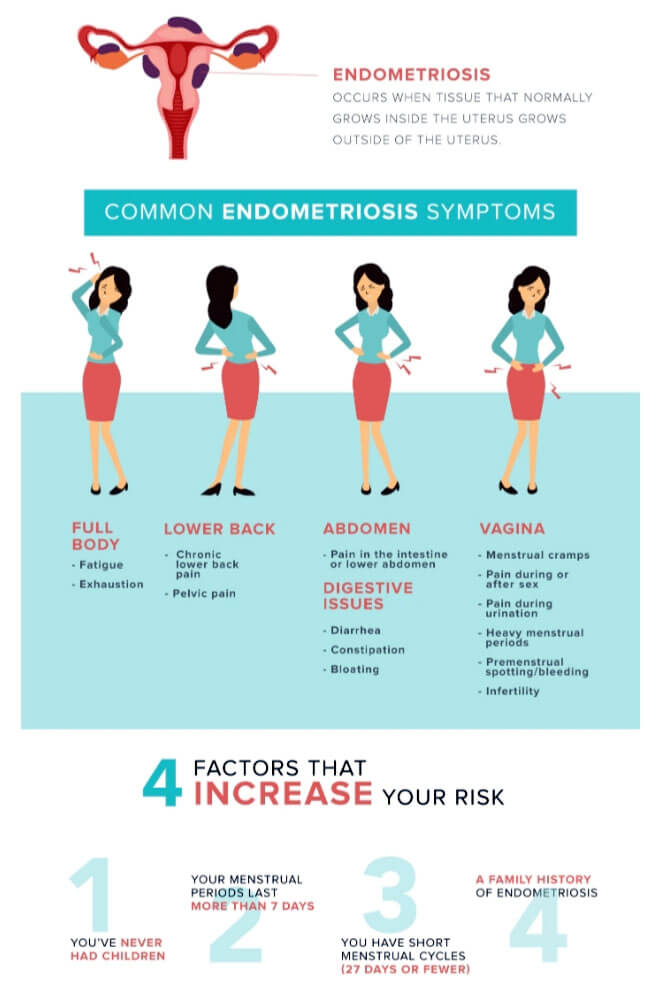
- What is endometriosis ?
It is a condition in which there is spread and growth of tissue which normally lines the uterus (endometrium) outside the uterus. It may involve the ovaries (chocolate cyst), rectovaginal septum, peritoneum, tubes, bowel, bladder. The incidence of endometriosis is on the rise. It is commonly seen in higher socio-economic groups and young women. - What are the symptoms of endometriosis ?
Recurrent abdominal pain, backache, cramps, heavy menstrual bleeding, painful intercourse, painful defecation, hematuria. Endometriosis is seen in upto 30 percent of patients with long standing infertility. - How can endometriosis be diagnosed ?
Ultrasound can pick up signs of adenomyosis, chocolate cysts and adhesions of the ovaries. MRI may be required for detection of bowel and bladder endometriosis. But the gold standard of diagnosis is Laparoscopy. It is advisable for long standing infertility patients to undergo diagnostic hysterolaparoscopy and look for endometriosis. However tubes are mostly never involved with endometriosis. - What are advantages of laparoscopy in endometriosis ?
Laparoscopy helps in better visualisation of endometriotic implants which are not visible to naked eye. Treatment involves release of adhesions, chocolate cyst wall excision, normailising tubo ovarian relationship, ureterolysis. - What is the treatment of bowel endometriosis ?
Depending on the extent of involvement and complaints, patient may require shaving of nodule, disc excision or bowel resection-anastamosis. All of the above procedures are best done laparoscopically. - What is the treatment of urinary tract endometriosis ?
Endometriosis of ureter – Ureterolysis, nodule excision, resection with anastomosis or reimplantation of ureter with bladder mobilisation.Endometriosis of bladder – Excision of nodule and bladder repair
- What is the role of surgery in women with endometriosis in family completed patients ?
It has been proved that extrauterine sites of endometriosis like rectovaginal, bowel, bladder, scar endometriosis are non-hormone sensitive. So GnRH analogue injections are of no use. The definitive management is surgery. Morever, the injections may have side effects like hot flushes, osteoporosis, severe menstrual irregularities.

